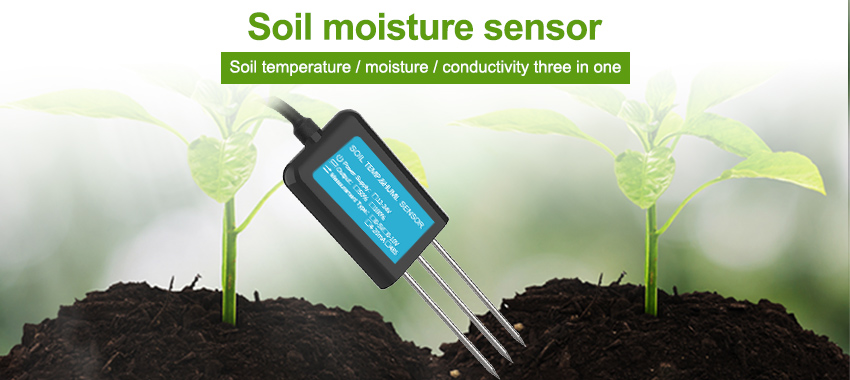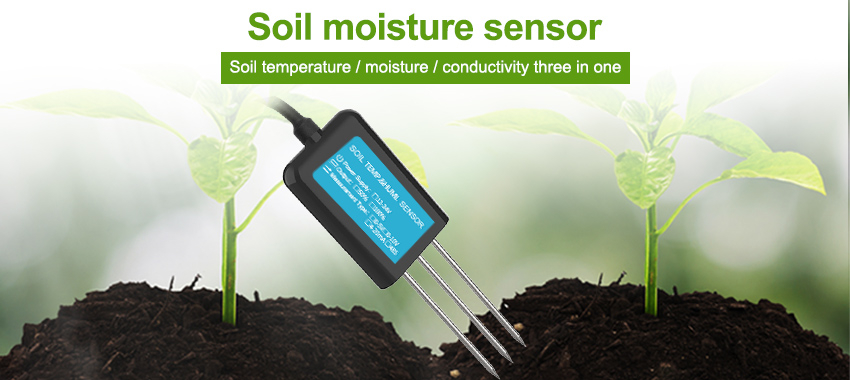Agriculture is one of the oldest industries in human history, and it has undergone many changes over the years. Today, technology is transforming the way we grow crops, and soil sensors are playing a vital role in this transformation. These tiny devices are designed to monitor various soil conditions such as temperature, moisture, nutrients, pH levels, and water content to provide farmers with real-time information on the health of their crops.

Soil sensors are part of the Internet of Things (IoT) revolution, and they work by collecting data from the soil and transmitting it wirelessly to a central hub or computer system. This data can then be analyzed to gain insights into crop growth patterns, disease outbreaks, pest infestations, and yield potential. By having detailed information about soil quality, farmers can make more informed decisions about when to plant, how much water to use, and when to fertilize or apply pesticides.
One of the significant benefits of soil sensors is that they can help farmers reduce waste and improve efficiency. By monitoring soil conditions in real-time, farmers can avoid over-watering or over-fertilizing their fields, which can lead to soil degradation, crop damage, and increased costs. Additionally, soil sensors can help farmers optimize planting schedules, so they can get the most out of their land without wasting valuable resources.
Another significant advantage of soil sensors is that they can enhance the sustainability of farming operations. By using precision agriculture technologies such as soil sensors, farmers can reduce their ecological footprint by minimizing the use of water, fertilizer, and pesticides. These devices allow farmers to target their input applications only to areas that need them, instead of broadcasting across entire fields, leading to a more efficient allocation of resources.
Soil sensors have a broad range of applications in agriculture, providing data on different kinds of crops under varying conditions. For instance, soil sensors are perfect for fruit and vegetable farming because of their high sensitivity to moisture, pH levels, temperature, and nutrient content. On the other hand, soil sensors are also useful in monitoring water availability in crops such as cotton and grain.
In addition to agriculture applications, soil sensors are also finding use in environmental monitoring. For example, governments and researchers use soil sensors to track the quality of land contaminated by industrial waste. These devices play an integral role in cleaning up sites that suffer from hazardous material spills, oil leakage, or other forms of environmental damage.
As technology continues to advance, soil sensors are becoming more affordable, accessible, and user-friendly. This trend spells good news for farmers who may not have large-scale operations to afford expensive equipment and software. By providing real-time data in easy-to-understand visual forms, soil sensors make it easier for smaller farmers to compete with larger corporations.
Another crucial aspect of soil sensors is their ability to leverage artificial intelligence and machine learning algorithms. By analyzing vast amounts of data collected over time, these systems can detect patterns and predict crop outcomes with unprecedented accuracy. By fed AI tools with data sets covering multiple crop seasons, we're giving farmers the power to make more informed decisions about cultivation cycles. Optimizing farming processes, predicting weather patterns, and effectively using resources improves efficiency and increases yields, reducing costs for small farm owners.
Soil sensors are revolutionizing the way we grow crops, and they're here to stay. With their broad range of agricultural and environmental applications, soil sensors have the potential to reduce waste, promote sustainability, and enhance the productivity of our farms. They help us modernize traditional farming techniques while ensuring that we respect the land and do our part in preserving our planet's natural resources. From dirt to data, soil sensors are shaping the future of farming, helping farmers maximize their yield while minimizing their impact on the environment.






